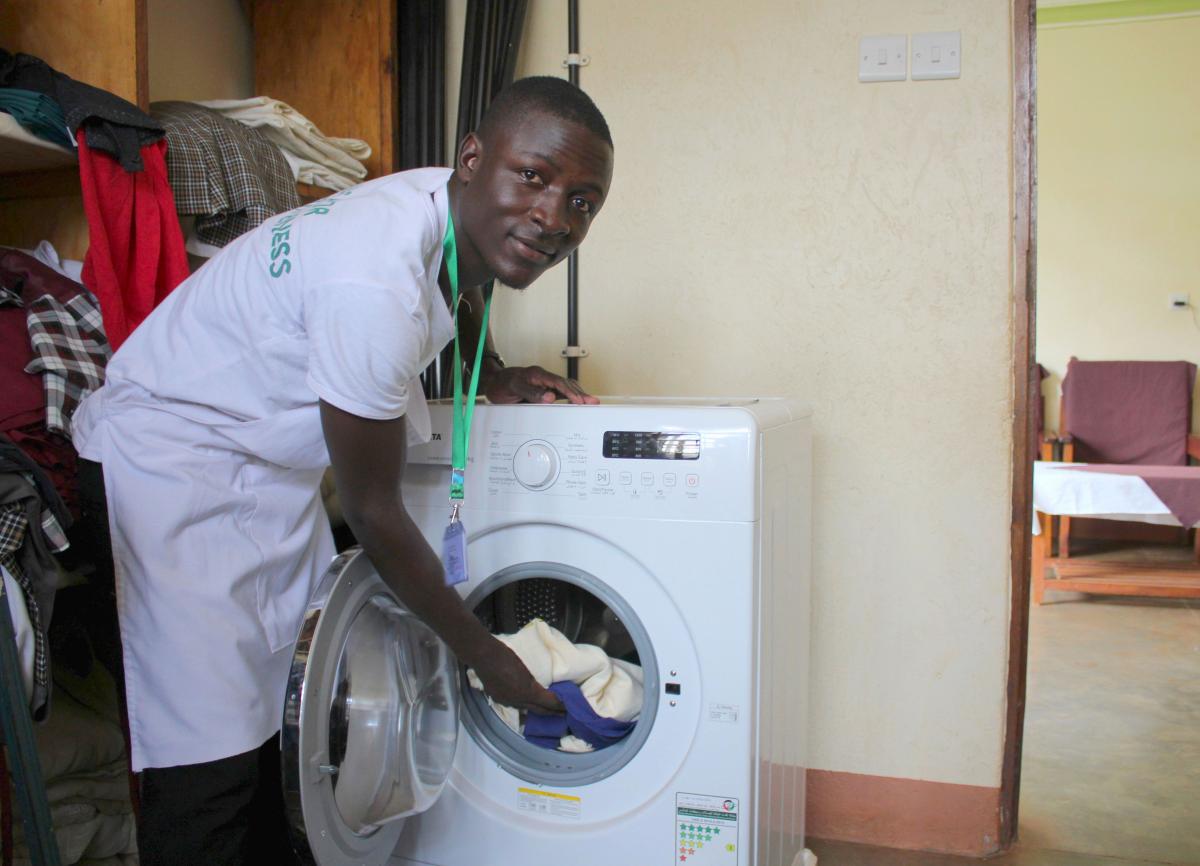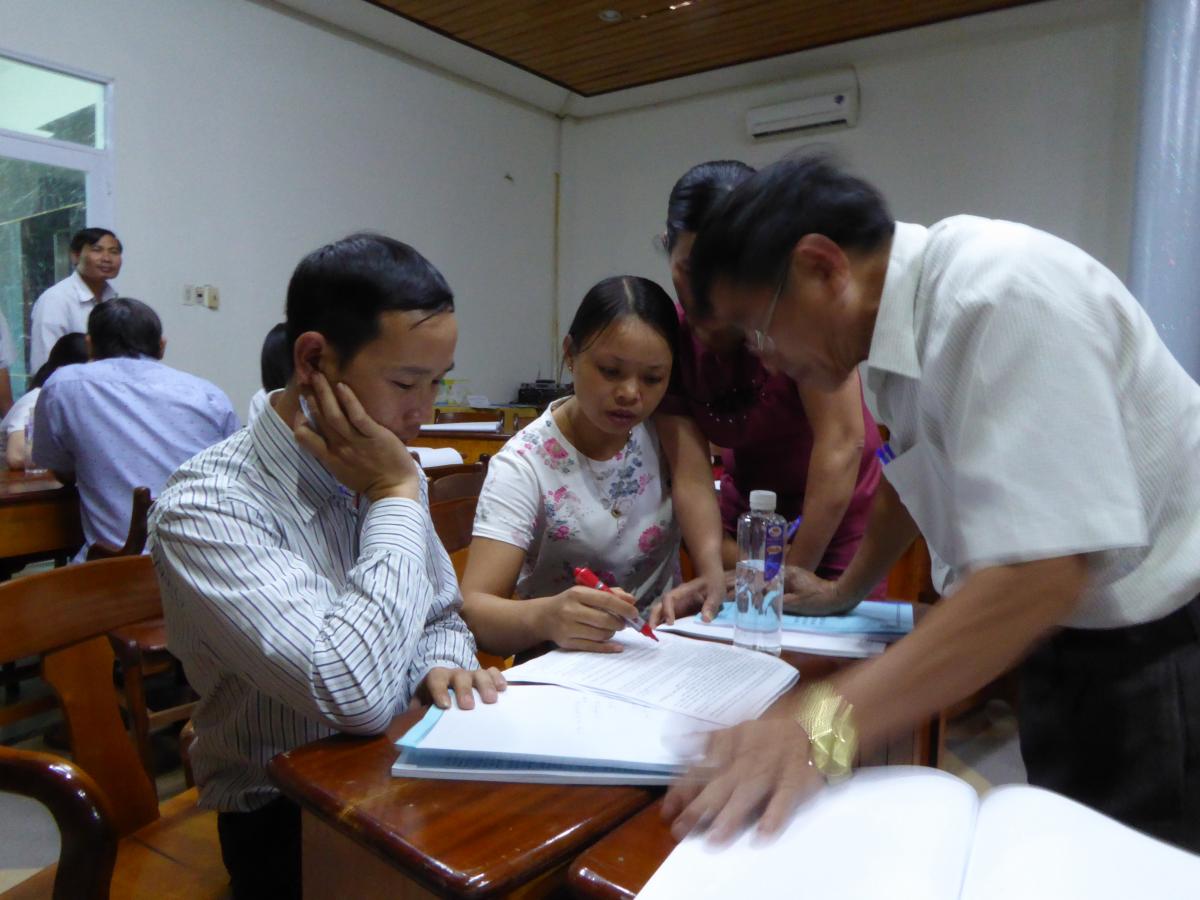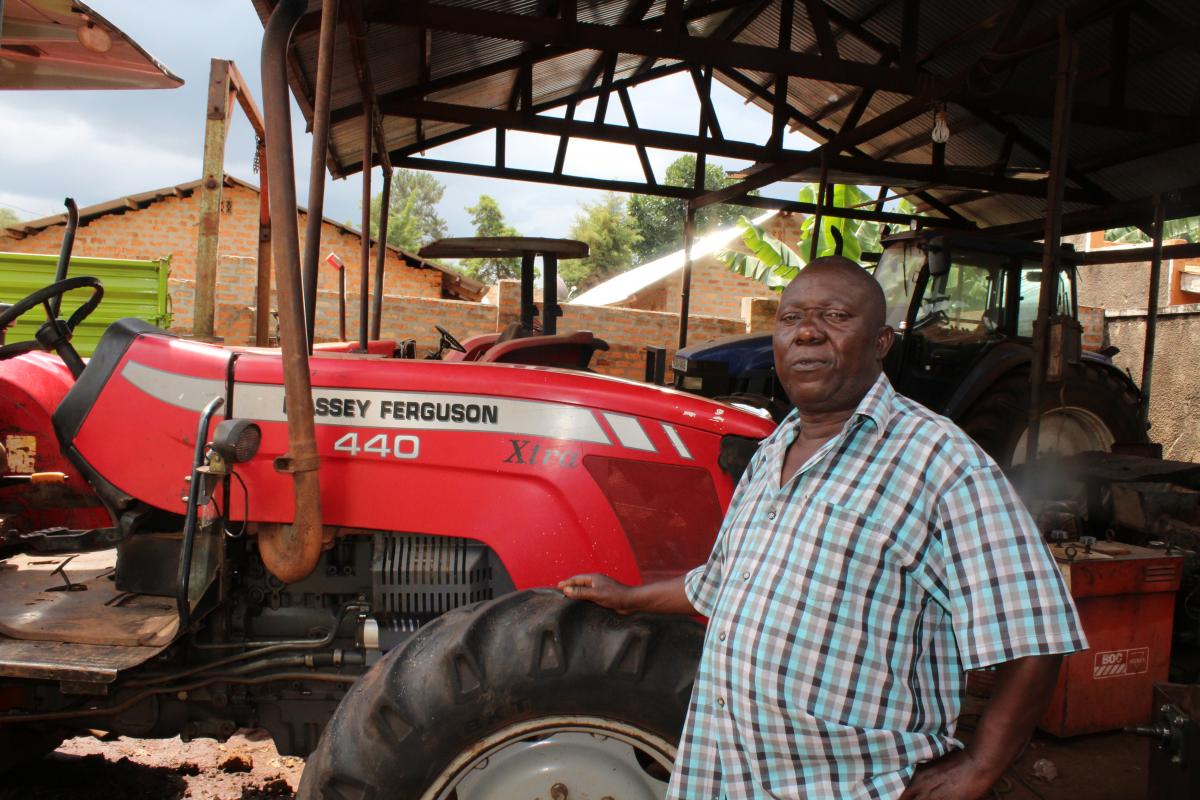Search
Viewing 2070 to 2085 of 2520 news
-

Les Activités Génératrices de Revenus changent la vie des communautés au Kasaï Oriental.
Julie CLAASSENS | 14/12/2017
La CTB - qui sera bientôt Enabel - est actuellement active dans un nombre de domaines essentiels pour atteindre les Objectifs de Développement Durable d’ici 2030. Le renforcement de l’entrepreneuriat local comme levier pour le développement fera notamment partie de ces missions.Au Kasaï Oriental, plus particulièrement dans le bassin d'emploi de Mbuji-Mayi et dans la province du Lomami sur le territoire de Ngandajika, un des objectifs est donner aux jeunes les compétences techniques nécessaires pour aborder avec succès le marché de l'emploi et s'y insérer avec réussite.A ce titre, depuis septembre 2016, le programme EDUKOR a initié une redynamisation en matière d'insertion professionnelle à travers l'appui, l'accompagnement, le coaching et le suivi aux projets de création d'Activités Génératrices de revenus (AGR), au sein des écoles de l'Enseignement Technique et la Formation Professionnelle. En total 21 activités seront réalisées par environ 42 anciens sortants des écoles.Le film ci-dessus montre comment la transformation alimentaire et la fabrication des outillages et équipments changent la vie des communautés à Mbuji-Mayi.
-
Modern cooking and cleaning with the Skills Development Fund
Hanna DEKERK | 14/12/2017
23 year-old Cyrus Kyagondoze is a Modern Housekeeping student at the Millennium Business School in Hoima. He dropped out of the 4th year of high school because his family could not afford his school fees. After several years of unemployment, Cyrus is happy to take the Modern Housekeeping training, subsidized by Enabel’s Skills Development Fund (SDF). “Getting hands-on skills is so important in Uganda now. That’s why I’m doing this.” Millennium Business School organizes Modern Housekeeping trainings for 10 students, plus African Cuisine training for an additional 10 students. With the support of the SDF, the school was able to upgrade the African Cuisine training with kitchen utensils and 10 environment- friendly cooking stoves. According to Director Robert Mwesigwa “These materials allow for modern and practical trainings. For the housekeeping training our most important purchase was a washing machine.“ As in rural Uganda washing is mostly done by hand, Cyrus had never in his life seen a washing machine. Until a technician from Kampala demonstrated how to install and use one during housekeeping classes. “That man was doing this work all over the region, making good money with it. This inspires me to try that too.” Even though housekeeping is generally seen as ‘a woman’s job’, the SDF encourages men to take up the profession. Cyrus is already on board: “I see no problem with men working in housekeeping. Our class went to a big hotel in Hoima and I saw a man doing household tasks. There is life in this job.” Both the African cuisine and Modern Housekeeping classes take up to 9 months, and include one month of practical training at quality hotels in Hoima. Additionally, during entrepreneurship classes, students learn to set up business plans and keep records, with the aim of stimulating them to create their own employment. 22-year-old Christine Alihaihi already has plans after her African Cuisine training: “Before I was helping my mom with catering jobs in the village. Now I can make whole dishes and want to start my own catering business.” The Skills Development Fund in Albertine-Rwenzori aims at sustainably improving the quality of technical and vocational trainings through public-private partnerships, in order to enhance the youth’s employability.
-

AFRICA CODE WEEK 2017 - UGANDA
William YEKA | 13/12/2017
Coding empowers future generations with the tools and skills needed to thrive in the 21st-century workforce. BTC Uganda this year partnered with ACW partners to roll out the initiative to remote areas of Uganda including Vocational Training Institutes. Check out what transpired during the week-long coding exercise.
-
Peoples Inspection Boards (PIB) trained for 2018
Marion FISCHER | 13/12/2017
Citizens in the communes need effective protection against violation of their rights and mistreatment suffered from wrong administrative decisions. They elect PIB, which can enforce correct administrative decisions and uncover malfunctions in public services. In the pilot communes of RALG Kon Tum, the PIBs now trained to fulfill their functions and coordinated the support from People’s Councils, the Vietnam Fatherland Front and social organizations. Familiarizing themselves with the new regulations, which were enacted in 2017, they practiced setting up their annual work plans and prepared to use their enhanced powers effectively. Representatives of People’s Committees render their support, because the work of PIBs will improve the two-way communication between citizens and government.
-
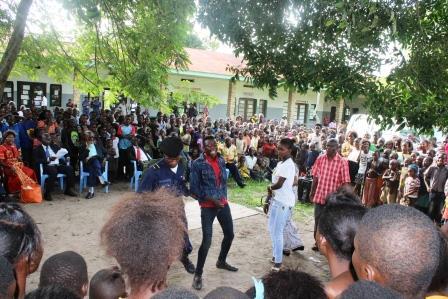
16 jours d’activisme contre les violences faites aux femmes
Julie CLAASSENS | 12/12/2017
Les autorités de Masi-Manimba engagées à décourager des arrangements à l’amiable dans les cas des violences sexuelles« En cette journée, nous, autorités de Masi-Manimba, nous engageons à combattre toutes ces formes de violences faites à l’égard de la femme et de la jeune fille dans nos milieux, à lutter contre toutes les pratiques malsaines qui favorisent les violences sexuelles, à dénoncer les auteurs des violences et à les traduire en justice, à décourager principalement la pratique des arrangements à l’amiable, à lutter contre la stigmatisation à l’égard des femmes victimes des violences sexuelles », c’est en ces termes que 25 autorités politico-administratives, policières et judiciaires du territoire de Masi-Manimba se sont engagées à lutter contre toutes formes de violences faites à l’égard de la femme et de la jeune fille dans leur territoire. Cet engagement a été pris, le samedi 25 novembre dernier, au terme d’une campagne de sensibilisation organisée. Sous le thème ‘Ne laisser personne pour compte : mettre fin à la violence contre les femmes et les filles’, une série d’activités a été organisée dans le territoire de Masi-Manimba et dans la zone de santé de Mosango, dans le but d’influencer les décideurs à prendre ce type d’engagement tout azimut. C’est en vue d’éclairer leur lanterne qu’une conférence-débat a été animée par le Président du Tripaix de Masi-Manimba, afin de rappeler les différentes infractions des violences sexuelles ainsi que les pratiques qui encouragent ces violences. « La loi ne prévoit pas des arrangements à l’amiable, ni des amendes à concurrence de la condamnation à un nombre d’années de prison. Ici, les us et les coutumes qui entrent en contradiction avec la loi doivent être abandonnés. Il est clair que les chefs coutumiers et des villages ne sont pas des Officiers de Police Judiciaire ni juges du parquet pour interférer dans l’administration de la justice sur cette question. Les habitudes du genre aller déposer la fille dans la famille du violeur moyennant paiement d’une somme d’argent ou des biens en nature sont passibles de plusieurs autres infractions comme le mariage forcé, la prostitution forcée, l’obstruction à la justice, en dehors du viol, qui sont aussi sévèrement sanctionnées. Il faut dénoncer le violeur et non l’obliger à épouser la victime. », a martelé le président du Tripaix de Masi-Manimba, devant des responsables territoriaux et un parterre d’élèves de l’ITM/Mosango. Au cours d’une journée marathon à Mosango, l’assistance a été conviée successivement à des séances d’information et à des activités ludiques comme une caravane motorisée, un match de football entre deux équipes des jeunes filles, deux pièces de théâtre et la déclamation des poèmes sur les pratiques favorisant les violences sexuelles et leurs conséquences. « Oui, les cas de viol ou de violences sexuelles sont nombreux dans le territoire de Masi-Manimba. Malheureusement, la population jusque-là demeure ignorante de la problématique de la dénonciation. Certains mêmes disent que le recours à l’arrangement à l’amiable se justifie à cause de la lenteur de la justice et au nom de la pudeur. Je peux vous citer des cas récents de MULUMA (sur la N1) où une gamine de 2 ans a été violée, je crois le 25 octobre dernier, par son oncle qui est une personne vivant avec handicap ; dans ce même village, en 2016 une autre fille avait été violée, engrossée et infectée même au VIH. Pour moi, cette activité est une innovation parce qu’elle encourage la dénonciation et qu’elle a permis de faire prendre conscience que la lutte contre les violences sexuelles est une affaire de tous. Ç’a interpellé tout le monde », a dit satisfaite Madame Adrienne Tabala, responsable du service étatique Genre dans le territoire de Masi-Manimba. - par Dominique KADIMAMUYA
-
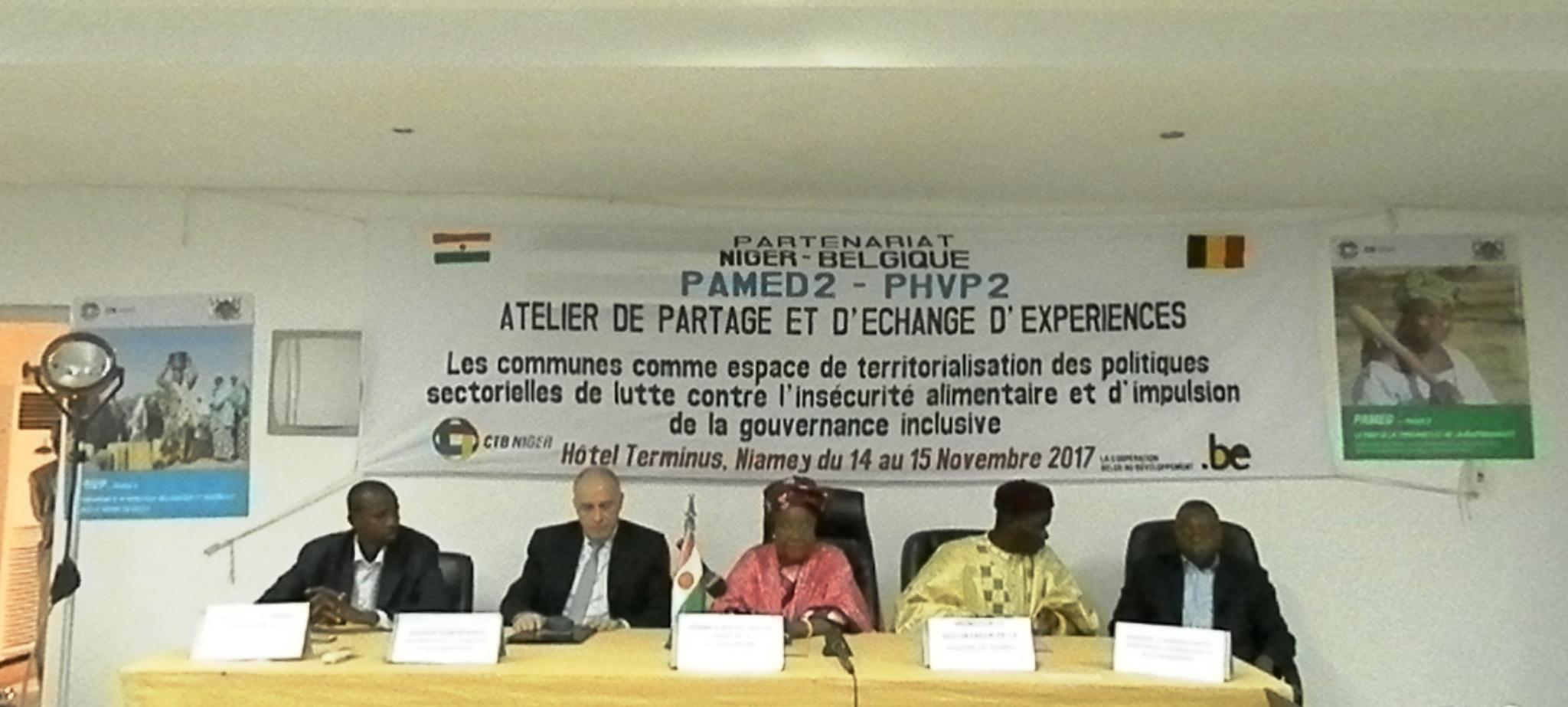
Les communes comme espace de territorialisation des politiques sectorielles de lutte contre l’insécurité alimentaire et d’impulsion de la gouvernance
Céline MEWISSEN | 11/12/2017
L’Atelier sous régional d’échanges et de partage d’expériences du Programme d’Appui à la mise en place des entités décentralisées dans la région de Dosso phase 2 (PAMED2) et du Programme Hydraulique Villageoise et Pastorale 2 (PHVP2) s’est tenu du 14 au 15 novembre 2017 dans la salle de réunion de l’Hôtel Terminus de Niamey sous le haut patronage de Madame HAPSATOU MAIZOUMBOU Ministre Déléguée en charge de la Décentralisation : « Je me réjouis, très sincèrement, des résultats positifs auxquels le Projet est parvenu. C’est le lieu pour moi de réitérer ici, au nom du Gouvernement du Niger et en mon nom propre mes remerciements et ma reconnaissance au Royaume de Belgique qui a permis le financement de cet important projet qui a toujours fait notre fierté tant par sa contribution à l’amélioration de la sécurité alimentaire que par son caractère innovant en matière de mise en œuvre de la décentralisation et de la gouvernance locale ». Centré sur le thème « Les communes comme espace de territorialisation des politiques sectorielles de lutte contre l’insécurité alimentaire et d’impulsion de la gouvernance inclusive », il a réuni des acteurs venus de plusieurs régions du pays, du niveau central, des partenaires techniques et financiers ainsi que des participants venus de pays limitrophes : le Bénin, le Burkina Faso et le Mali. Plusieurs thématiques ont été débattues dont entre autres: la maîtrise d’ouvrage communale, la gestion durable des investissements publics communaux, le suivi du développement communal, la mesure de la performance en gouvernance communale, l’accès des femmes au foncier, le financement du développement local, etc. Les présentations, les débats et les témoignages des acteurs ont mis en exergue un niveau de satisfaction élevé des acteurs par rapport aux résultats atteints par les deux programmes. Ainsi, il ressort que l’amélioration nette de la gouvernance communale a contribué à faire des communes des entités viables capables de conduire un processus de localisation de la politique nationale de sécurité alimentaire qui a permis de porter le taux de couverture alimentaire de 11% à 13% et de réduire le taux de ménages vulnérables de 30% à 13% entre 2012 et 2017 dans les 12 communes d’intervention du PAMED2. Des modèles intéressants de financement du développement d’autres pays ont été présentés par la Commission Nationale des Finances Locales du Bénin et la CTB Mali ainsi que de LuxDev et de UNCDF et ont suscité de riches débats entre les participants. Des travaux de groupes ont également été organisés autour de thématiques de l’approche pôle de développement et la valorisation des filières porteuses, ainsi que le rôle des collectivités dans la promotion de l’emploi et de l’initiative privée des jeunes. Les participants ont insisté sur la nécessité de veiller à une meilleure implication des bénéficiaires dans la conception des microprojets pour assurer une appropriation optimale et leur durabilité. Les communes ont également été interpellées pour plus d’implication et de responsabilité dans la gestion durable des investissements communaux de sécurité alimentaire. Dans le souci d’un développement équilibré, les participants ont recommandé à l’Etat de prendre les mesures appropriées pour une mise à l’échelle de certains outils/approches du PAMED2 afin d’éviter une communalisation à double vitesse dans laquelle certaines communes performent tandis que d’autres trainent le pas. Enfin, une motion spéciale a été adressée au Royaume de Belgique et à la Coopération Technique Belge (CTB) pour tous les appuis apportés dans l’amélioration des conditions de vie des populations de la Région de Dosso. Ils ont saisi l’occasion pour demander le renouvellement des programmes PAMED et PHVP.
-
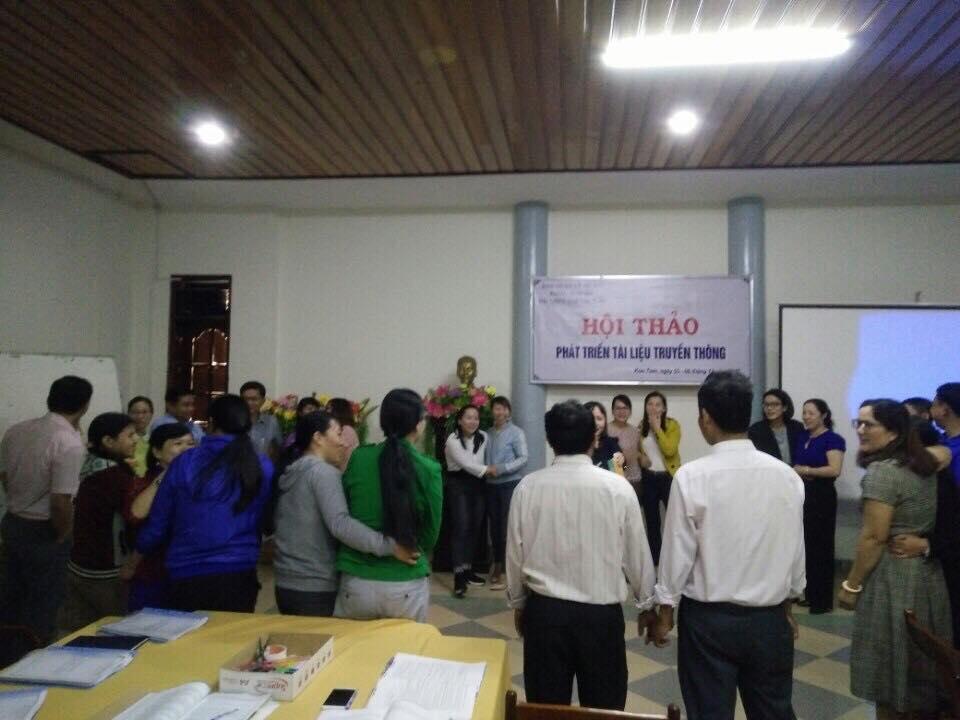
Government information made easy to comprehend
Marion FISCHER | 11/12/2017
Citizens need easy to understand and to use information on governmental policies and regulations. RALG Kon Tum now prepared the radio people in the villages to make their news and information much more interesting and digestible. On 7th and 8th December 2017, in a workshop, active promoters of the project have selected the most important topics, media, forms and developed new designs for dissemination of government information and policies. Posters, leaflets, comics, podcasts and flip-roll-charts will be displayed and handed to the people instead of the formally copied texts of government regulations, from now on. During the workshop, some of the comics were first played out and rehearsed in sketches.
-

Pépiniériste et agent phytosanitaire passioné, Eddy Katombe raconte.
Julie CLAASSENS | 07/12/2017
Près de 80% des Congolais vivent en milieu rural et l’agriculture est le principal secteur de l’économie. Le Congo souhaite redynamiser le monde rural par le développement de structures de productions modernes et par le renforcement des petits exploitants. Regardez et écoutez Eddy Katombe Munyuka, un des premiers bénéficiaires du Programme de Développement Agricole dans le Kasaï Oriental et le Lomami.
-
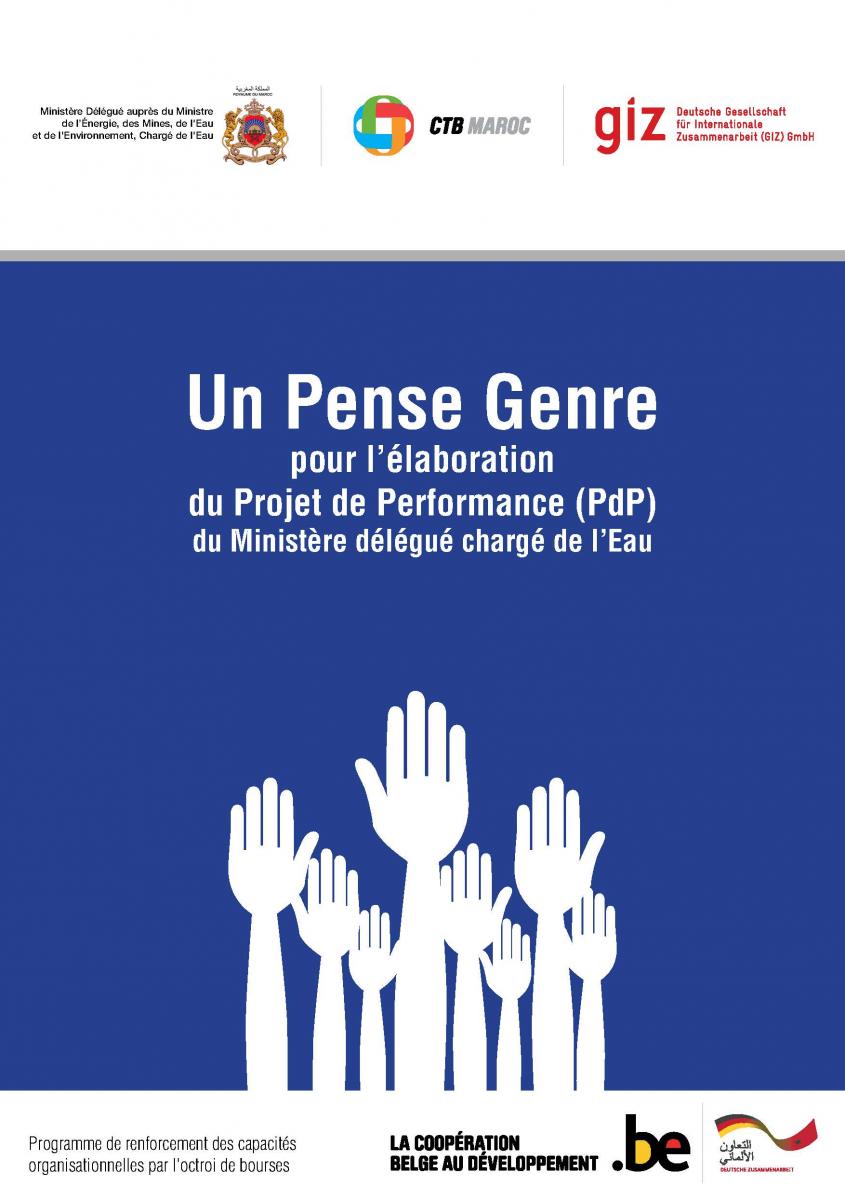
Un pense genre, un outil de référence
Meriem HILALI | 07/12/2017
La GIZ et la CTB Maroc ont mutualisé leurs efforts pour développer un manuel "pense genre" qui permet à ses utilisateurs de disposer d'un outil de référence pour incorporer la dimension genre et droits humains dans le secteur de l’Eau et de l’Assainissement. Ce document fait suite à un cycle de formation sur « l’Intégration du Genre dans les politiques publiques », qui a été organisé entre novembre 2015 et février 2016 au profit du Ministère Délégué Chargé de l’Eau, des Agences de Bassins Hydrauliques et de l’Office National de l’Électricité et de l’Eau Potable-Branche Eau. Le "pense genre" contient notamment une explication de la programmation budgétaire axée sur les résultats, les différentes étapes de son application dans les processus politiques et une démarche pour l’élaboration du projet de performance du ministère en se basant sur des cas pratiques. https://goo.gl/Zat5Lq
-
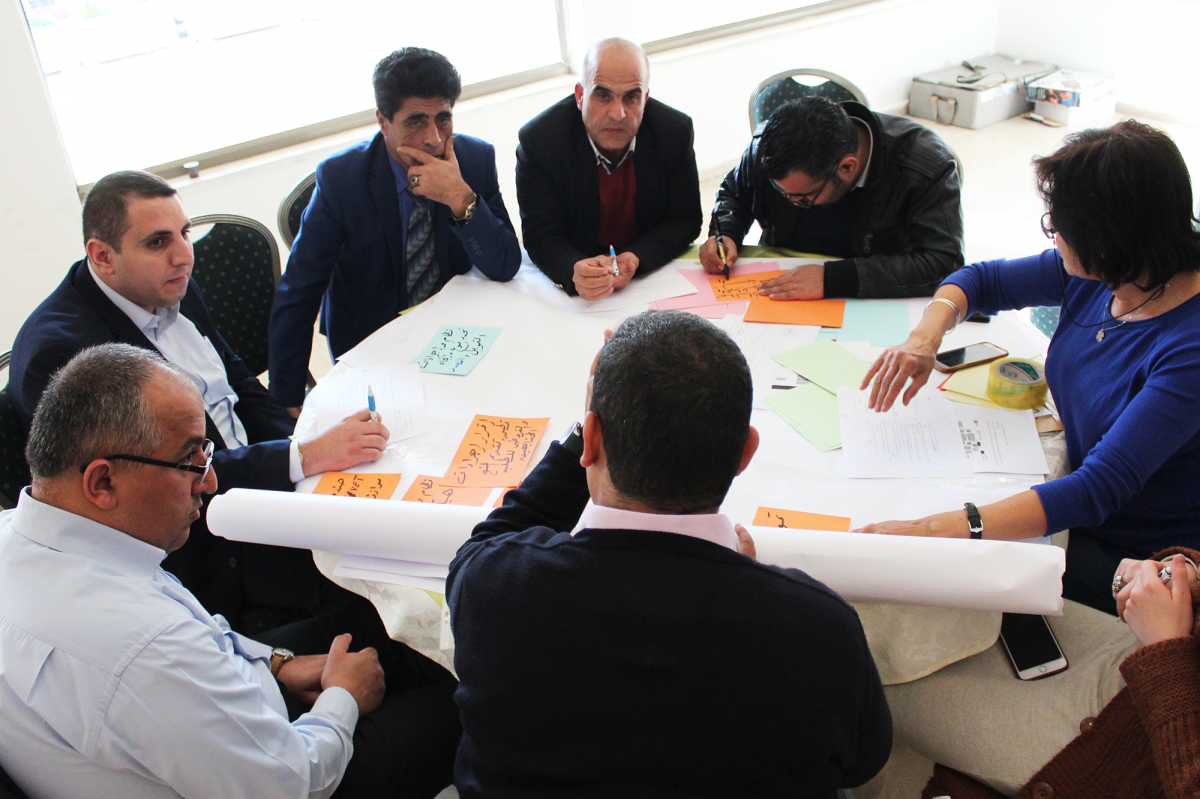
Work-Based Learning Strategic Plan Workshops
Laura SCHILLEMANS | 07/12/2017
On 28 and 29 November, the Belgian Development Agency organized two interactive and participatory workshops in Ramallah and Gaza to develop a Strategic Plan on Work-Based Learning (WBL). The goal of the workshops was to bring together all stakeholders: representatives from the Ministry of Education and Higher Education, Ministry of Labour, Ministry of Planning and Finance, Chambers of Commerce, Gender Units, Sector Federation, National Employment Councils, directors and coordinators of TVET institutions, NGOs and international actors active in TVET (GIZ, EU, IRPAL) and other social partners who contributed to the success of the ECIB WBL initiatives. During this workshop they could share their experiences, best practices and lessons learned from the 83 conducted Work-Based Learning initiatives in the West-Bank (including Jerusalem) and Gaza. After a series of analytical meetings and central and regional analyses, this final workshop culminated all efforts in order to complete the development of a national WBL strategy. The result of the workshops will be a reference document for all stakeholders on a national level, offering a clear strategy on how to institutionalize Work-Based Learning in Palestine in a sustainable way.
-
Involving master crafts persons for quality training
Hanna DEKERK | 06/12/2017
Sam Kasangaki is a man of many occupations : garage owner, tractor dealer, mechanic, chairman and training coordinator. He directs Farmer’s Engineering Solutions in Masindi, a garage where students from the surrounding Vocational Technical Institutes (VTIs) gain practical experience. Sam has been in the business for 25 years. At his garage students learn about welding, metal fabrication, electrical engineering and car maintenance. Throughout this year he had 60 students under his wings, coming from Kyema VTI in Masindi and Buhimba Technical College and St-Simon Peter Vocational Technical College in Hoima. As Sam is clearly a master of his craft, he participated in a master crafts persons training organized by the Belgian Technical Cooperation (BTC). “I learned many things”, he says, “How to handle students , organize their courses and foresee safety measures. It has improved our organization of trainings. ” Because Sam is also the chairman of the Ugandan Small Scale Industry Association (USSIA) in Masindi, he is trying to organize testing facilities in his garage so students can prove their practical experience through a USSIA certified worker’s PAS. This PAS stands for the Practically Acquired Skills of a profession and is also recognized by the Ugandan government. It can open doors for students who dropped out of school but have obtained professional skills in other ways. 20-year old Victor Muganyizi studies electrical engineering and knows why he is at Sam’s garage: “I came here because I will actually learn something. In other companies they sometimes can’t teach you anything”. The Support to Skilling Uganda project of BTC is supporting the pedagogical training of mastercrafts persons, while coaching students to upgrade their skills, together with instructors from VTIs.
-
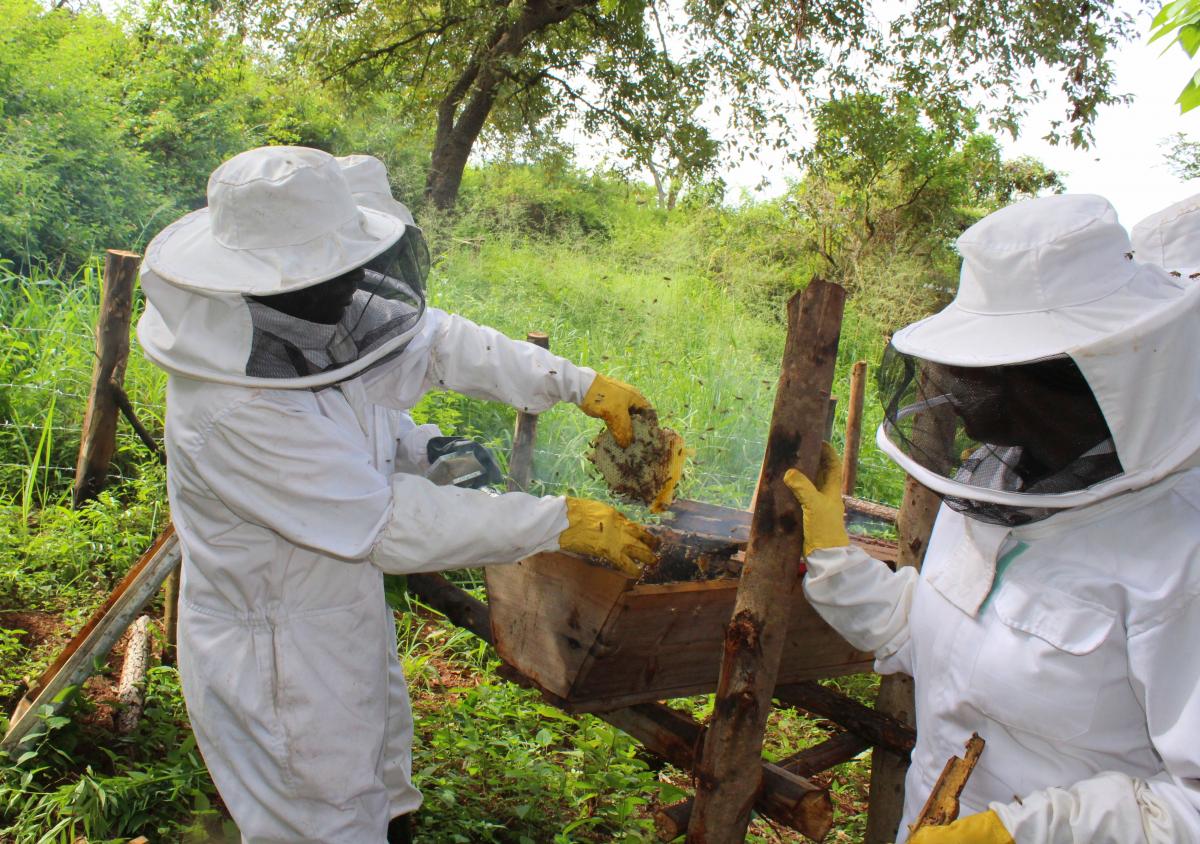
Making money from honey thanks to the Skills Development Fund
Hanna DEKERK | 05/12/2017
At the Nyabyeya Forestry College in Masindi, 136 students are following beekeeping courses. As most of them are enrolled fulltime in the forestry program, they consider beekeeping a class as any other. But not 20-year old Peace Nabuzale. She is one of the rare students trying to graduate as a professional beekeeper: “My fellow students seem to forget that it is bees which pollinate these forests.” The beekeeping program is one for busy bees. Students first learn how to construct a beehive and make a smoker, which is used to calm down the insects. They then practice how to take care of the bees and harvest their honey. Finally, students process products such as honey, bee wax candles and even propolis, a medicinal liquid. Peace enjoys the program, saying that she loves the opportunities of beekeeping. “With more bees, more flowers will get pollinated, which will increase the production. Thanks to bees you can get high yields from everyday flowers.” Lawrence Ayo, her instructor, affirms that the school’s honey and candles sell very fast. Bee products seem an underused source of income in the region. Thanks to the Skills Development Fund, master beekeepers from TUNADO (The Uganda National Apiculture Development Organisation) trained 11 of the school’s beekeeping instructors during a 10-day training. Lawrence is one of them: “I didn’t have the necessary practical skills because we mostly taught beekeeping from books. Now I can set an example for my students.” But it doesn’t stop there. The Skills Development Fund is also used to buy protective beekeeping suits for the students. Before, these were only available for the teachers, leaving students vulnerable to painful stings. As Ambrose Ahibisibwe, the vocational training coordinator of the college puts it: “It is no wonder that beekeeping was not a popular class. But now students can safely practice out in nature.” To reduce the threshold for beekeeping, students are taught to build hives from local materials such as elephant grass or reeds. This is cheaper than constructing one from timber and iron sheets. “We motivate our students to start beehives on their own, so they don’t become jobseekers but create jobs themselves. “, instructor Lawrence adds. Peace already has some hives at her house. “After my training, I want to help my father in developing our beekeeping business. He is getting too old for it.” The Skills Development Fund in Albertine-Rwenzori aims at sustainably improving the quality of technical and vocational trainings through public-private partnerships, in order to enhance the youth’s employability.
-
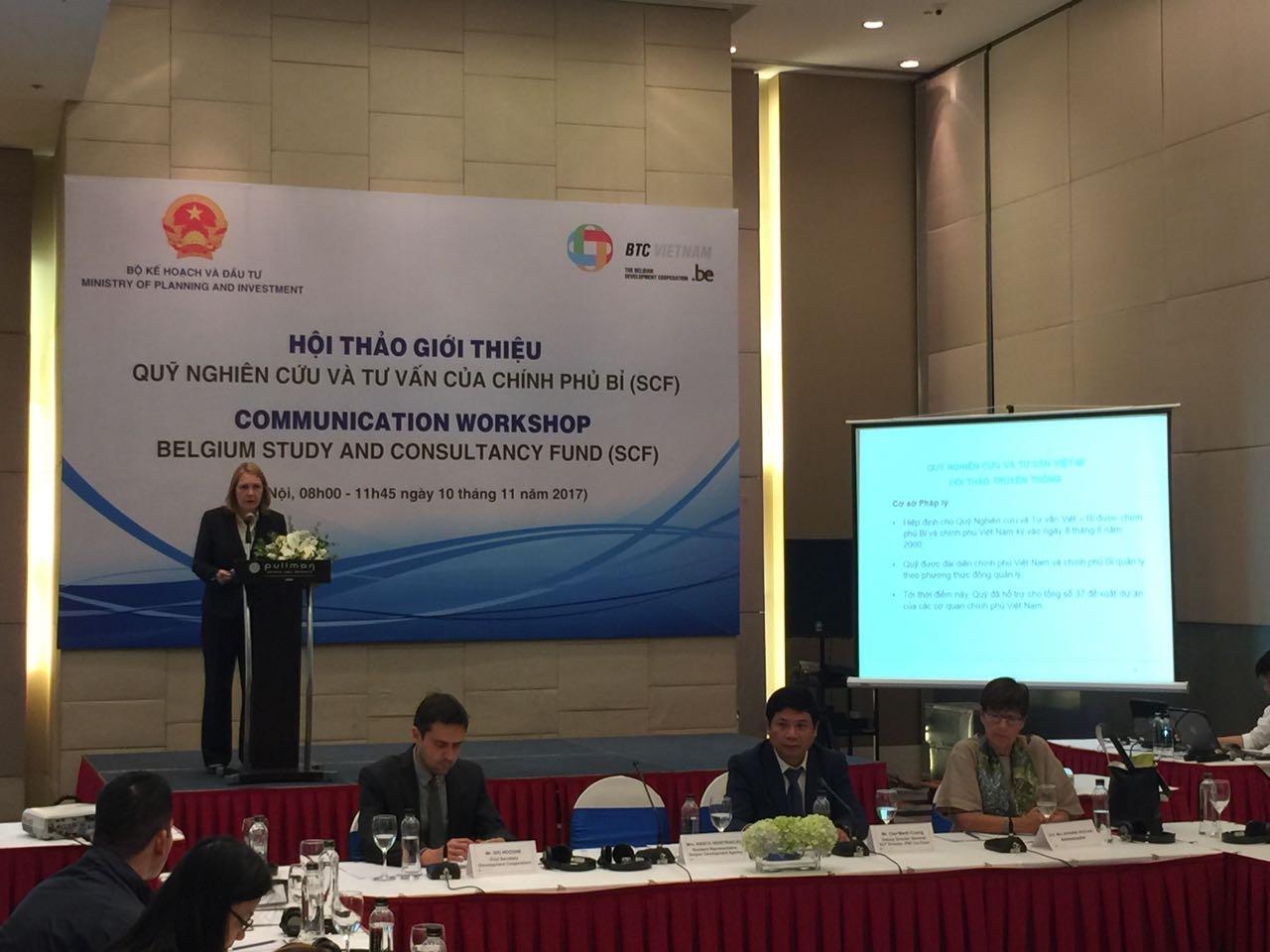
Communication workshop on Study and Consultancy Fund on 10/11/2017
Anh NGUYENNGOC | 29/11/2017
This successful workshop was co-chaired by MPI and BTC and it took place in the presence of the Belgian Ambassador and of the Head of the Development cooperation at the Embassy. The 60 participants from different Ministries, Government Institutions, Universities and Provincial Departments, received detailed explanations about the Objectives of the Fund and about the requirements and procedures for introduction of proposals. The workshop was marked by a very interesting session of Q& A’s. The SCF is preparing now for the handling of the final round of project proposals, before the final closure of the Fund.
-
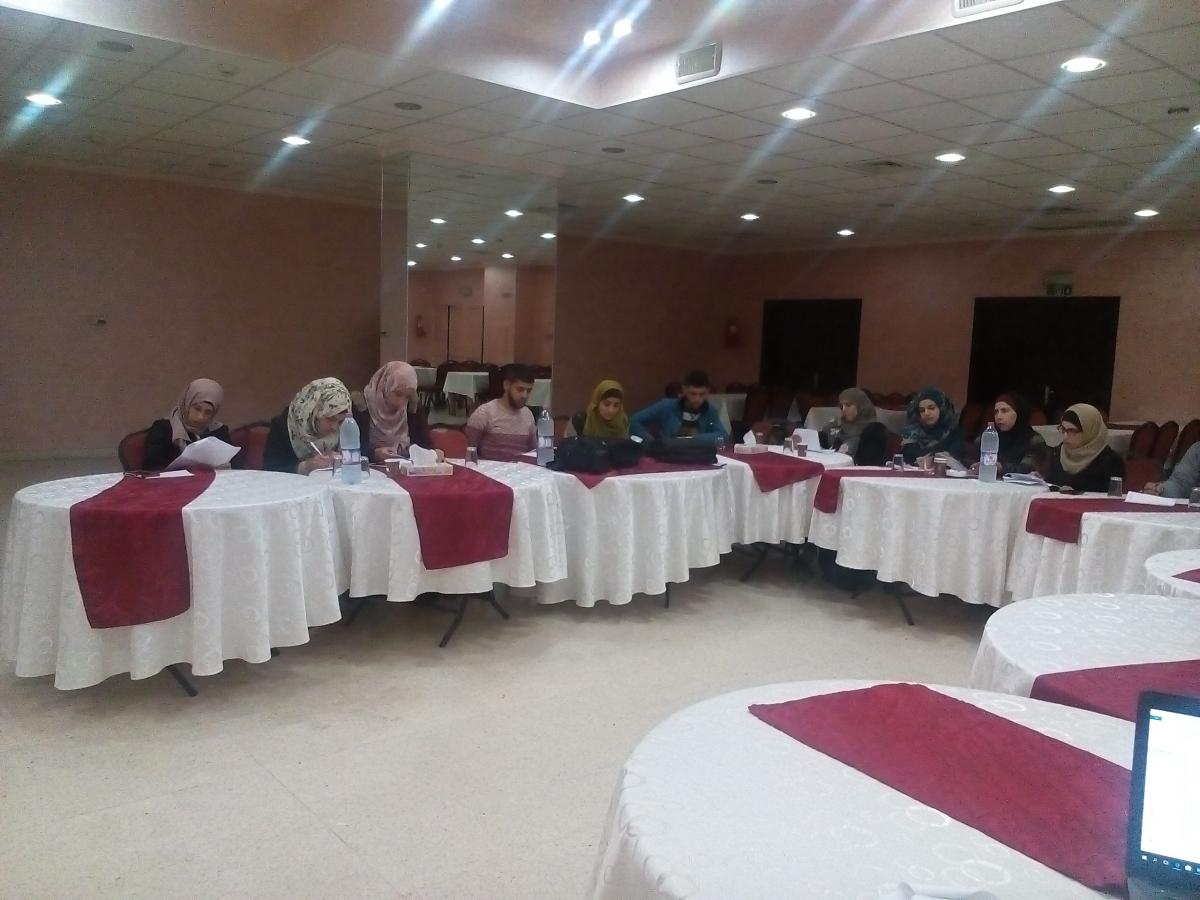
Training of graduates to conduct public surveys to evaluate BTC's projects
Laura SCHILLEMANS | 27/11/2017
The Belgian Development Agency is preparing a public survey to assess the citizens’ perception about the changes brought by the LGRDP (Local Government Reform and Development Program) and RHC (Regeneration of Historic Centers) projects. The results of the survey, that will be finalized by March 2018, will serve as a guidance for future interventions. Newly graduated students, from the targeted localities, are being trained by consultants to conduct the interviews. They are learning how to conduct a survey and how to analyze the collected data. This way they will have the opportunity to gain field experience. Nehal Barghothi from the village of Abbood is one of the trainees. She recently graduated from the Al-Quds Open University and she said that her participation is the perfect opportunity to improve her skills, experience, work proficiency and economic status. “This type of work will help me build relations with members of society and it will provide me with additional skills for the labor market.”
-
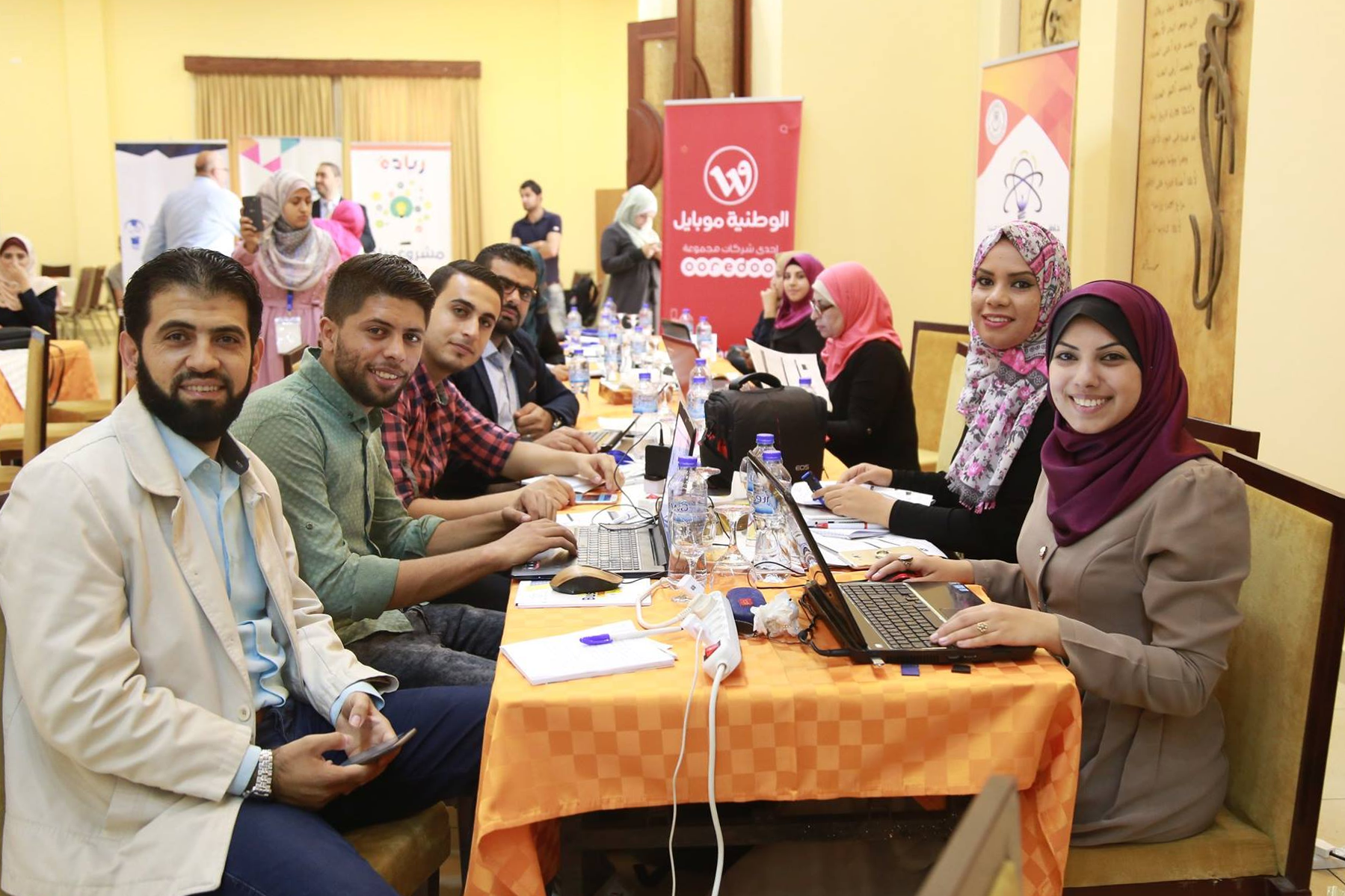
Entrepreneurship Awareness and Boot Camps in Gaza
Laura SCHILLEMANS | 27/11/2017
The Business Startups Incubators Support (BSIS) Project in Palestine, funded by EU and implemented by the Belgian Development Agency (BTC), organized “Entrepreneurship Awareness and Boot Camps” at the Business and Technology Incubator of the Islamic University in Gaza. The objective was to increase the interest in entrepreneurship among potential entrepreneurs by demonstrating the economic, social and psychological rewards of entrepreneurship. Each awareness session included a Q&A session with local entrepreneurs who already launched their own start-up. This way the participants got familiar with the challenges and rewards related to entrepreneurship. The participants also got to know more about the services BSIS offers to entrepreneurs. The awareness sessions were followed by two-day Boot Camps. The Boot Camps aimed at encouraging team work and stimulating idea generation. The trainer illustrated the process of idea development through a brainstorming session with the participants. The participants were divided into multi-disciplinary teams and each team was requested to brainstorm about an idea and pitch it to the other groups. Afterwards the groups had to vote for their favorite idea. The best pitching teams were selected to attend an intensive “Start up your business training” which will be announced soon. Discover more about the Boot Camps in the following videos: http://ow.ly/D30b30gPMQ4 & http://ow.ly/G0Oj30gPMV8
